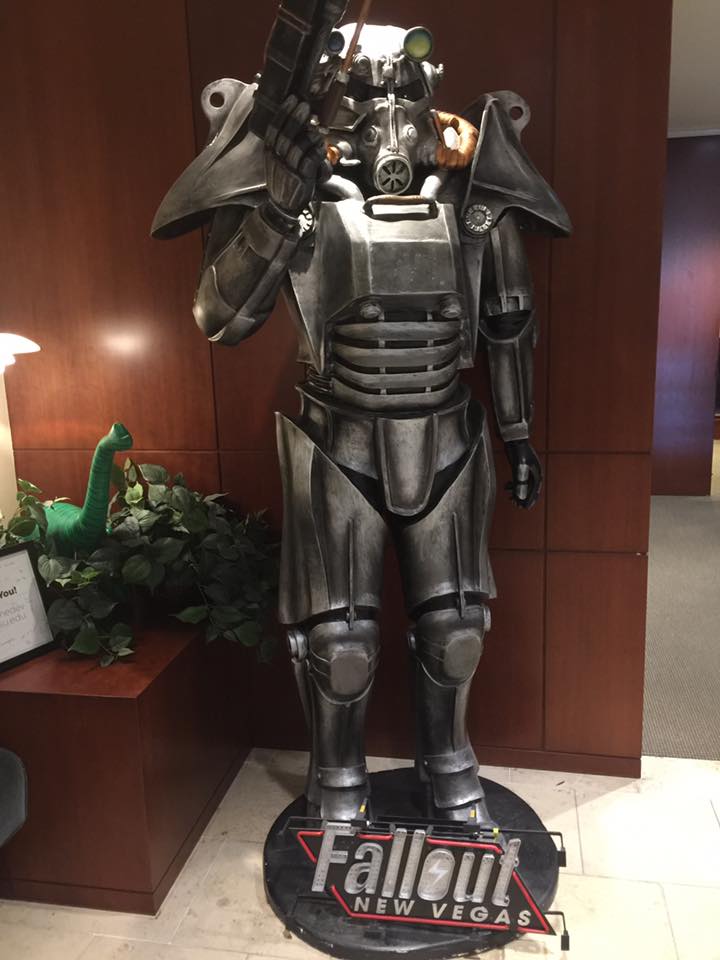Why Obsidian turned down a Game of Thrones video game
With the penultimate season of Game of Thrones finished on TV and a colossal amount of people talking about it, it's hard to imagine any video game maker ever passing up the opportunity to get a piece of that franchise pie. But as I found out recently, Obsidian Entertainment did - it turned down Game of Thrones.
Obsidian - the creator of Fallout: New Vegas, Star Wars: Knights of the Old Republic 2, South Park: The Stick of Truth and Pillars of Eternity (among many others) - was offered the opportunity to make a game based on George R. R. Martin's story in 2005 by Electronic Arts (well, EA Partners).
It was six years before Season One of Game of Thrones aired on TV, nevertheless Obsidian co-founder and CEO Feargus Urquhart was well aware of the Song of Ice and Fire books - he'd followed them since the series started in 1996. He knew intimately what he was turning down, and he believed he had a good reason why.
The promo for the very first season of HBO's Game of Thrones.
"My feeling was, understanding the IP at the time, it's about this political intrigue, and people's connection to the IP is to all these characters - that's how the books are written, each chapter is a person and what's happening to them," Urquhart told me when I visited Obsidian recently.
"Other than what weird stuff is going on beyond The Wall, and the dragons, and some hint [of fantasy/magic], there are no magic users, there are no clerics, no thieves. Basically there's dudes with swords and armour and a little bit of mysticism, but within the main land [the Seven Kingdoms] there's no goblins, no kobolds..."
What would players play beyond a soldier? What would they fight? Not much was known about beyond The Wall at this point. It was really relationships between key characters that set A Song of Ice and Fire off.
"And," Obsidian co-founder and vice president of development Chris Parker added, "you can't give the player a character they can play that is important in this world. All of the important characters are all clearly spelled out and you can't even really go have a conversation with them."
"Looking back at it," added Urquhart, "the only thing we could have done is what BioWare did with Knights of the Old Republic. They basically said Episodes 1-6, you can't touch it, so we're just going to go way back. But even then some stuff had already been written about it in the [Star Wars] Expanded Universe. With George R. R. Martin there was no other... they talked about some history... we could have done that."
Or, do what
The Lord of the Rings: War in the North (2011) did and pick on a spin-off thread, in this case
the other Fellowship up north who were doing a bunch of stuff to help the main Fellowship Tolkien wrote his books about. Obsidian actually pitched this LOTR idea to Warner, but then Warner bought Snowblind and made War in the North.
"So maybe there could have been something we could have done," said Urquhart, getting back to Game of Thrones, "but we were starting to think more about open-world RPGs, and we wanted our players to have agency, to be important in the world.
"Back then [real-time strategy games] were more relevant and I said, 'I just don't know how we could make... It just feels more like an RTS game.' You have different factions and you put more political intrigue in there."
French developer Cyanide must have felt the same way, or been listening, because in 2011 it tried exactly that.
A Game of Thrones: Genesis was an RTS set centuries before the book timeline but sadly it wasn't any good.
Episodic storytelling expert
Telltale adapted Game of Thrones much more recently in a well-received series told from the perspective of a footnote-obscure northern family loyal to the iconic Starks.
Surely Obsidian would choose differently today, assuming the deal were right, but back in 2005 things were very different. A Song of Fire and Ice hadn't been blown into the stratosphere by HBO Game of Thrones fever, and it was just one of many game possibilities floating around Obsidian Entertainment. I spent hours with Feargus Urquhart and Chris Parker combing over Obsidian's past and unearthing many more of those possibilities - and I have plenty of tales to tell beginning roughly a week from now. Stay tuned!



























 How about playing better?
How about playing better?













